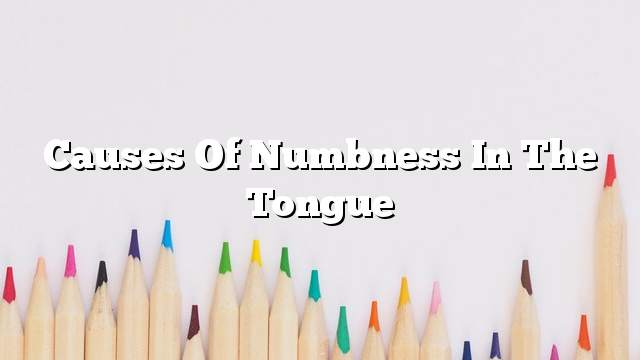the tongue
The tongue is a member within the mouth that is connected to the jaw through seventeen muscle working on the movement and work and cover the surface of the tongue mucous membrane covered by a lot of small papillae that have at the ends of the ends of nerve help in the process of taste and the surface of the tongue wet because of saliva.
Sections of papillae
The papillae are divided into four sections:
- The follicular papillae are elongated cone and are numerous in number and spread on the tongue and do not contain sprouts.
- The papillae are mushroom-like and have a thin stalk and contain tart buds that are scattered among the papillae.
- Leaf papillae containing tasting buds are on the side of the tongue.
- Follicular papillae Many serological cells secrete secretions in the perineum of the papilla and act as fluid flow.
The numbness and tingling of the tongue is caused by BMS, which causes dryness of the mouth and a taste of metal taste in the mouth. Many people may become numb, twitching and numb in some cases.
Causes of numbness in the tongue area
- Lack of vitamin B 12 ) As this vitamin has an important role in the health of the nervous system and any deficiency in the amount of this vitamin significantly affects the health of the nervous system.
- Diabetes.
- Hormonal changes that may occur when a person is numb and tingling the tongue.
- Decreased calcium in the blood due to the lack and decrease in the proportion and level of calcium in foods eaten or because of cirrhosis in the liver or due to lack of secretion of glands thyroid.
- A defect in the facial nerve caused by a problem in the teeth.
- Stroke.
- Multiple sclerosis.
- A problem in the nerves that can be transmitted and spread to the rest of the mouth and may affect the jaw and lips.
- Medical errors committed during dental treatment that can be injured by the person when the wisdom tooth is taken off.
- Damage to facial nerves caused by dental injuries.
- Tumors in general and brain tumors in particular.
- The presence of fracture or dislocation in the jaw area.
- Head injuries that cause swelling and pressure.
- The presence of lumps and tumors depress the pressure on the nerve.
Symptoms that appear for people with numbness and numbness of the tongue
- Muscle weakness.
- The appearance of weakness in the face.
- Changes to the taste.
- Feeling numb in the tongue area and nearby areas.
